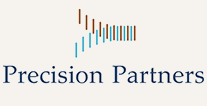Major Gifts Officer works with prospective donors to obtain funds and coordinate stewardship, among many other tasks. When it comes to data, there are often two schools of thought regarding the Major Gifts Officer’s role in data entry.
- The Major Gifts Officer should only be able to view enough information in the Constituent Relationship Management (CRM) platform to do their job.
- The Major Gifts Officer should actively input the information when directly interacting with a donor.
We discuss the pros and cons of each option to help you decide whether to task your Major Gifts Officer with entering data or not.
Major Gifts Officer Granted Read-Only Access
Granting a Major Gifts Officer read-only access is the look, but don’t touch model. The idea behind this is that institutions don’t want to burden the Major Gifts Officer with this entry-level, tedious task.
Here’s what to consider.
Pros
The read-only access model keeps your gift officer focused on fundraisers and activities rather than data entry. Your gift officer is a highly-paid resource. Not requiring them to enter data is being fiscally responsible.
Major Gifts Officers are likely better suited to creating strategy, building relationships, connecting with donors and faculty, and identifying opportunities to support donors’ philanthropic vision and impact.
Cons
By only granting your Major Gifts Officer read-only access to your data, you are centralizing data entry to a particular group specifically trained and in continuous conversation about data quality. This group understands the nuances of the system and data entry and has a straightforward methodology to maintain usable and reliable data.
But they are staying up to date of this valuable information, but your Major Gifts Officer is not. The gift officer is in the middle of the stuff happening while it’s happening—they’re gaining information and know firsthand how the donor feels. Getting as much of that information into the CRM is critical.
If the Major Gifts Officer is not responsible for data entry, you need some way to get the information from them into the system. This transfer of knowledge requires a second step and resources to be able to process the data—that’s instant overhead. It’s purely duplicative work if the person takes the information the gift officer gave them and copies and pastes it into the system.
But what if it’s not a copy-and-paste situation? Maybe the person is required to interpret what the gift officer provided them. For example, information is miscoded and goes through another filter before inputting into the CRM. This scenario allows for information to be lost or misinterpreted—like the age-old game of telephone.
Another con is if the Major Gifts Officer never touches the system and is not responsible for data maintenance, do they really have any stake in data quality? If they aren’t responsible for data maintenance, they may view it as someone else’s job. This creates the wrong environment and culture.
Data is an institution’s greatest asset. It’s a downside for the Major Gifts Officer to be entirely removed.
Major Gifts Officer Required to Enter Data
This model ensures that Major Gifts Officers are at the forefront of the CRM system, and the responsibility to enter data usually comes with a mandate from the Chief Philanthropy Officer.
Here’s what to consider.
Pros
When Major Gifts Officers are tasked with data entry, one notable pro is that the information entered comes directly from the source. The CRM system reflects what happened as close as you can get.
Another pro is the gift officer is interacting with the system—it’s not just view only—it’s a genuine interaction that offers a different perspective. Major Gifts Officers may be more inclined to notice errors and offer a more complete profile because they are involved in many interactions.
This level of interaction may motivate them to correct errors if the record is misaligned. For example, the gift officer might notice a donor’s address is outdated if they recently met at the donor’s house.
Cons
There is specific training involved in understanding the CRM system from a data entry perspective. And most institutions have additional procedures to maintain data quality. The added responsibility of extensive training sometimes becomes a hardship for Major Gifts Officers.
This issue becomes more complex as gift officers learn additional information they may want to capture in the CRM system. They start to accumulate a training burden, and given the nature of their job, they may be unable to fulfill it. Even with the best intentions, things start to go awry and have a cascading effect—data becomes less usable and reliable. There’s no denying it, data quality is impacted without proper training and understanding of processes and procedures.
Now that you’ve considered your options, both may sound bleak. Our recommendation is to consider a model that’s not either-or. Instead, establish a workflow where Major Gifts Officers enter data firsthand to eliminate duplicative work. If they don’t have entry privileges, determine how to document the information and task someone else with entry. Or consider using guardrails. Guardrails could be helpful tips while entering or validating information.
At the very least, have a formal review process before data is deemed final. A formal review process presents an opportunity to make the workflow prescriptive. This interactive method suggests double-checking existing information in the record for accuracy. And establish balance. This eliminates the trepidation Major Gifts Officers may experience and gets them involved in the CRM system. You need them to be a knowledgeable user for the advancement of CRM.

